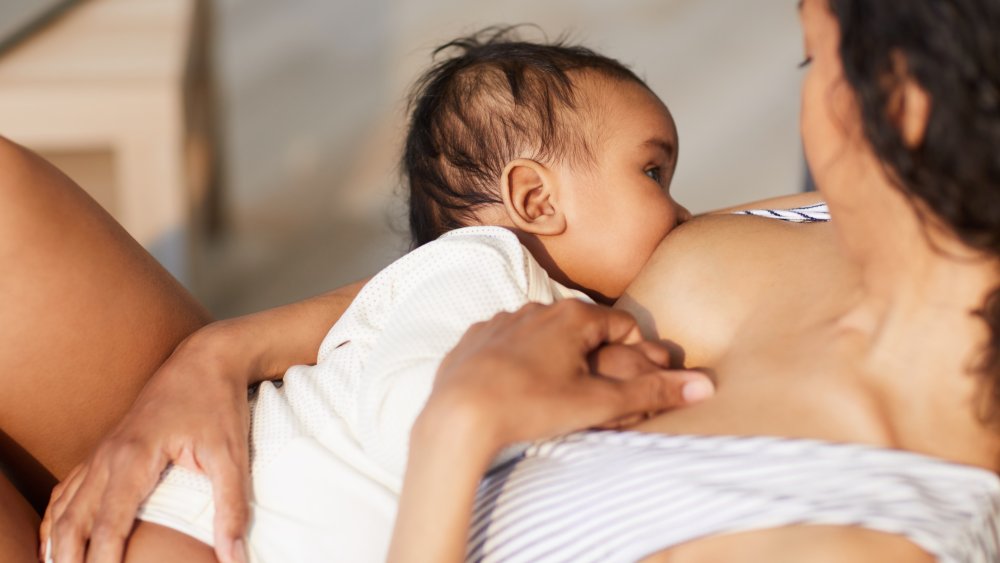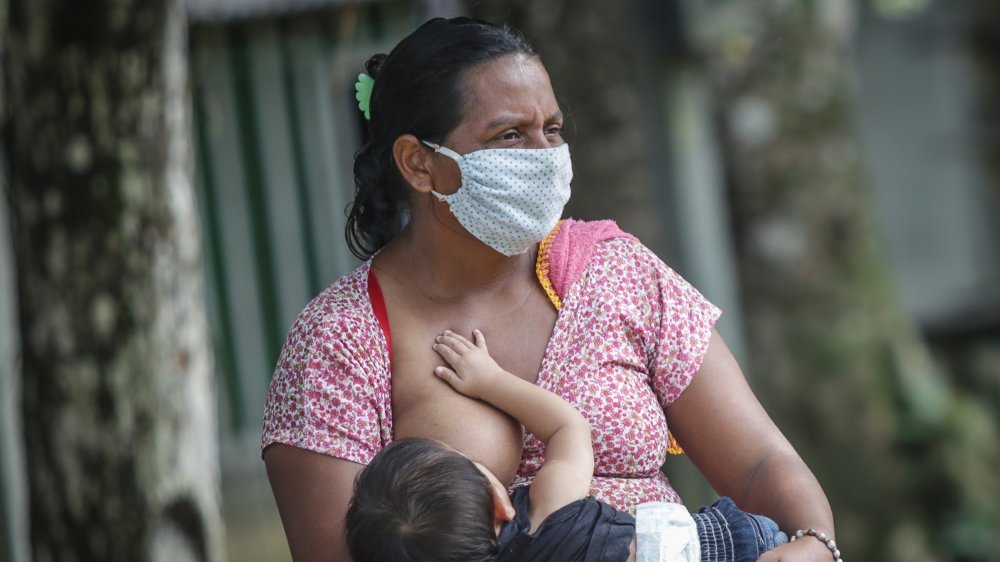What You Need To Know About Breastfeeding And COVID-19
COVID-19 has affected us all. Not only is wearing face masks quickly becoming the new normal, many of us have also changed the way we shop, work, and socialize. Across the world, nations are working together to slow the spread of the virus to protect both the young and the old. And while no cases of babies contracting coronavirus via breastmilk have been recorded, it's understandable that mothers are particularly worried about accidentally spreading to the infection to their newborns (via WebMD). However, according to researchers, this is very unlikely.
A study recently published online in the Journal of the American Medical Association, which examined 64 samples of breastmilk from 18 women with COVID-19, found that there's little chance that the breastmilk itself would be a source of transmission. Furthermore, the World Health Organization (WHO) recommends that mothers with suspected or confirmed COVID-19 should continue to breastfeed, referencing a study that looked at 46 breastmilk samples from 46 women infected with COVID-19. While 13 of the babies were also infected with COVID-19, only 3 of the breastmilk samples contained viral particles — however, the virus was not "live" and therefore, it's unlikely it could be transmitted.
Research regarding breastmilk and the COVID-19 infection remains limited
As the study lead Christina Chambers, a professor of pediatrics at the University of California, explained to WebMD, "Detection of viral RNA does not equate to infection." She continued, "It has to grow and multiply in order to be infectious." However, regardless of the findings of both the studies, the Centers for Disease Control and Prevention (CDC) warns that when it comes to breastmilk and COVID-19 infection, information remains limited.
At the end of the day, the decision to breastfeed comes down to the mother of the child and her doctor. From what we do know about the COVID-19 infection, infants and children generally fall in the low-risk category, with WHO claiming those who do get infected only experience mild symptoms, if any at all — but keep in mind that this is a new disease, and experts are learning more with each passing day, so this might not always be true.
However, mothers with COVID-19 who do choose to breastfeed should take extra precautions every time they feed their child, wearing a mask while breastfeeding and washing hands whenever touching their baby (via Queensland Health).


